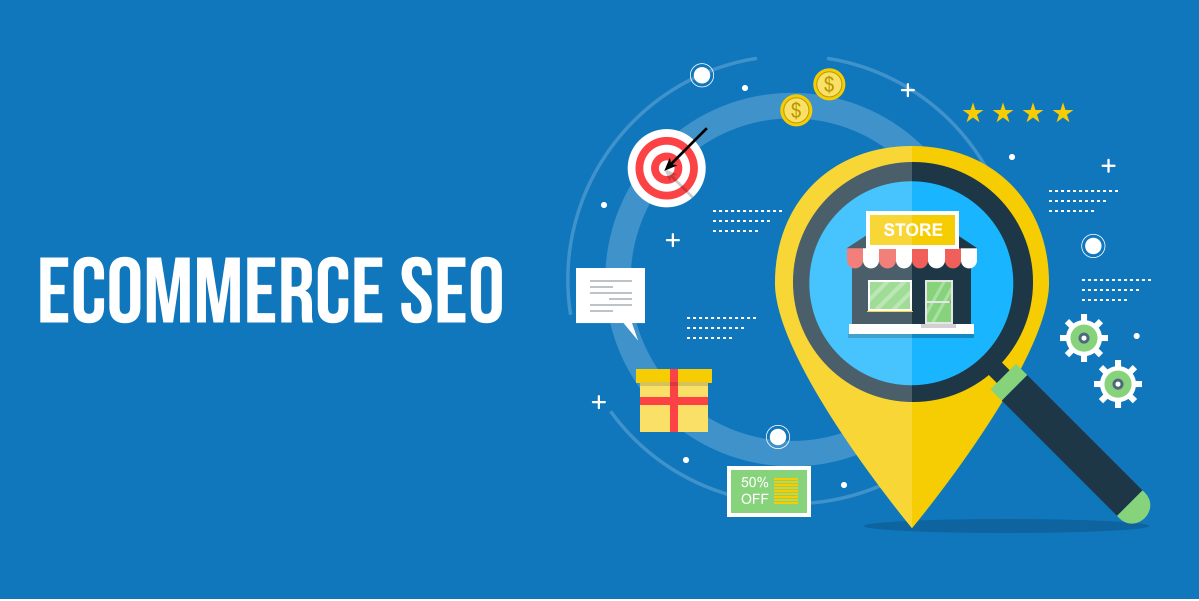eCommerce SEO
- Home
- SEO SERVICES

In today's digital age, more and more businesses are shifting their focus towards e-commerce as a way to reach new customers and increase sales. However, with so many e-commerce websites out there, it can be challenging for businesses to stand out from the competition. This is where e-commerce SEO comes in. E-commerce SEO is the process of optimizing an e-commerce website to improve its visibility in search engine results pages (SERPs), attract more targeted traffic, and ultimately drive more sales. In this article, we'll discuss the importance of e-commerce SEO and the strategies that are essential for a successful e-commerce SEO campaign.
Why is E-commerce SEO Important?
E-commerce SEO is important for businesses for several reasons: Increased Visibility: By appearing higher in search engine results pages (SERPs), businesses can increase their visibility to potential customers who are searching for products or services related to their industry.
Targeted Traffic: E-commerce SEO helps businesses attract targeted traffic from users who are more likely to be interested in their products or services. Improved User Experience: Optimizing an ecommerce website for SEO can also improve the overall user experience, including faster page load times, easier navigation, and more relevant content. Competitive Edge: Ecommerce SEO can help businesses stand out from their competitors by ranking higher in search results and attracting more traffic and sales.
Essential E-commerce SEO Strategies:
Keyword Research
Keyword research is the foundation of any successful ecommerce SEO campaign. It involves identifying the most relevant and high-traffic keywords for a specific industry or product category. This includes incorporating these keywords into the website's content, meta descriptions, titles, and other on-page elements.
On-Page Optimization
On-page optimization involves optimizing the website's individual pages for search engines. This includes optimizing title tags, meta descriptions, headers, and content with targeted keywords. On-page optimization also includes optimizing images, internal linking, and URL structure.
Site Structure and Navigation
A well-structured website with easy navigation is not only important for user experience, but it also helps search engines understand the hierarchy and organization of the website's content. This includes creating a clear site structure with categories and subcategories and using internal linking to help users and search engines navigate the site.
Mobile Optimization
With more and more users accessing the internet via their mobile devices, mobile optimization is crucial for e-commerce websites. This includes ensuring the website is mobile-friendly with fast load times, responsive design, and easy navigation.
Link Building
Link building is the process of acquiring high-quality links from other websites back to your website. This helps improve the website's authority and credibility in search engines. For ecommerce SEO, it's important to obtain links from relevant and high-quality sources, such as industry publications or other ecommerce websites.
Content Marketing
Content marketing is another essential part of e-commerce SEO. This includes creating high-quality and informative content related to the business's products or services. This can include blog posts, product descriptions, how-to guides, and more. By creating valuable content, businesses can attract more traffic to their website and improve their authority in search engines.
Analytics and Reporting
Analytics and reporting are essential to measuring the success of an ecommerce SEO campaign. By tracking metrics such as traffic, conversions, and rankings, businesses can understand the effectiveness of their SEO efforts. Regular reporting can also help identify areas for improvement and adjust strategies accordingly.
Ecommerce SEO is essential for businesses looking to increase their online visibility, attract more targeted traffic, and ultimately drive more sales. By implementing the essential ecommerce SEO strategies, businesses can stand out from the competition and achieve long-term success in the digital marketplace.